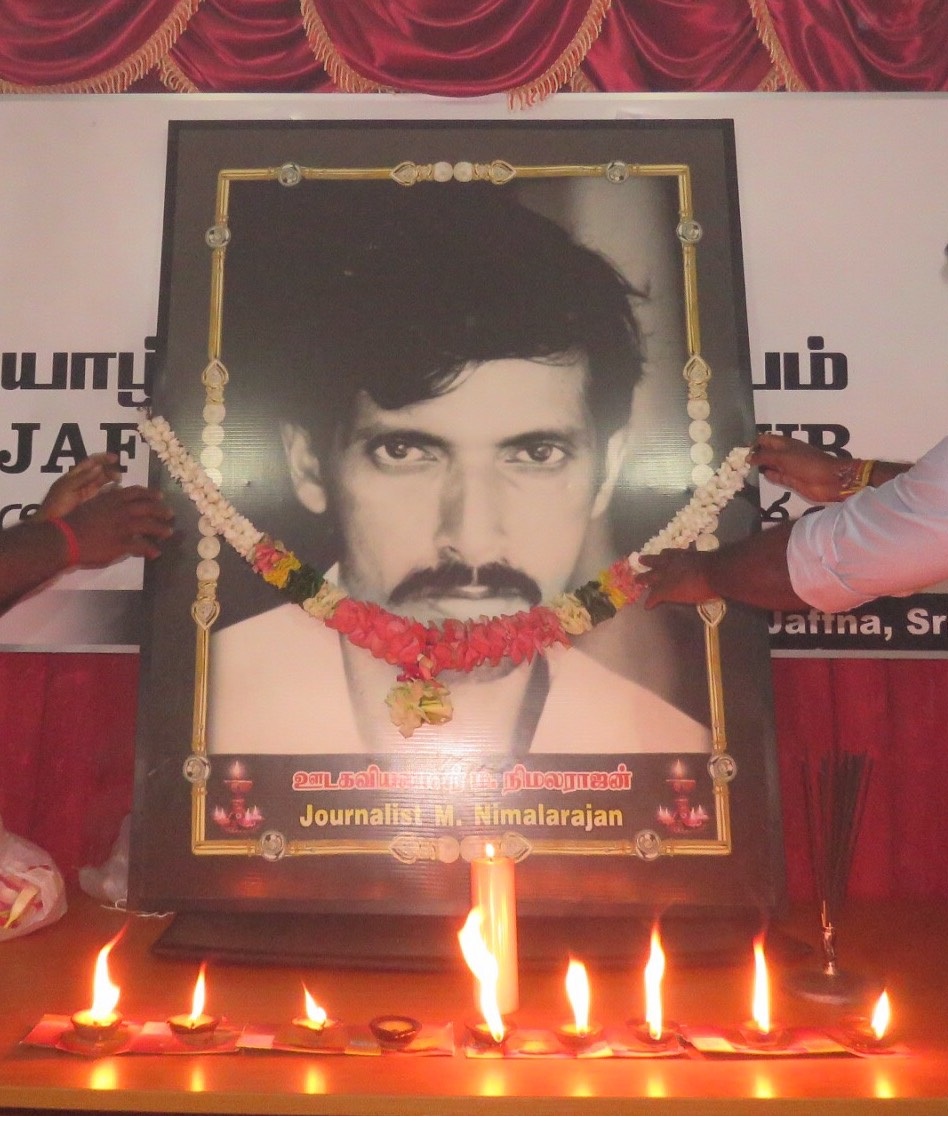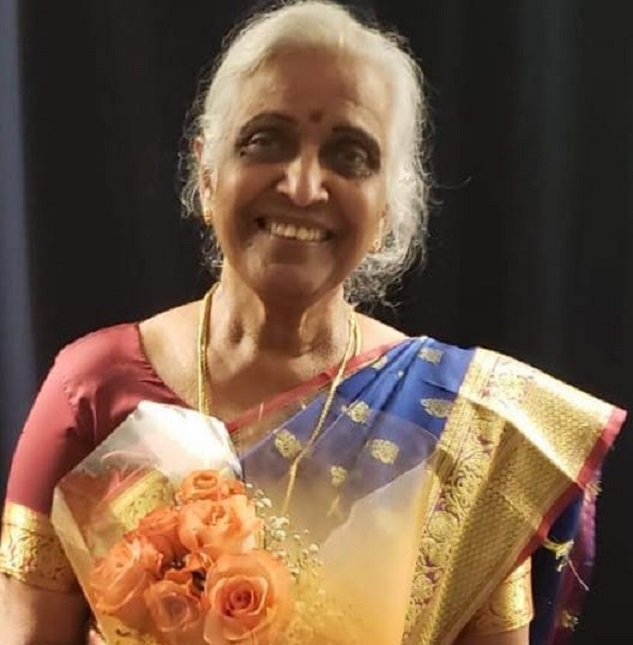
Today marks 24 years since Tamil journalist Nimalarajan Mylvaganam was murdered in his Jaffna home.
Nimalarajan contributed to the BBC for over six years, as well as the Tamil daily Virakesari and Sinhala weekly Ravaya.
He was murdered as he was writing for the BBC at home one evening. According to the BBC,
His father was repeatedly knifed and his mother and young nephew badly injured by a hand grenade explosion in their sitting room.
All this took place during curfew hours in a high security zone in Jaffna close to several military check points.
The Committee to Protect Journalists stated shortly after his death:
“The assailants shot the journalist through the window of his study, where he was working on an article, and threw a grenade into the home before fleeing the premises. The attack occurred during curfew hours in a high-security zone in central Jaffna town.”
“Local journalists suspect that Nimalarajan's reporting on vote-rigging and intimidation in Jaffna during the recent parliamentary elections may have led to his murder.”
The government-aligned paramilitary group the Eelam People's Democratic Party (EPDP) are suspected of carrying out the killing. The Sri Lankan Attorney General's department ordered the release of the suspects involved in the murder case. At least two other suspects were thought to have been abroad.
In February 2022, the Metropolitan Police’s War Crimes Team arrested a 48-year-old man in Britain over Nimalarajan's murder. The man was later released.
Read more here: British war crimes police arrest man over murder of Tamil journalist in Jaffna
Former BBC journalist Frances Harrison recalled his death, and the struggle to get justice for it, in a 2004 piece towards the end of her time on the island.
She detailed the night Nimalarajan was killed.
Two armed men burst into Nimalarajan's house as he was listening to the news on the BBC Tamil service at night.
One man shot Nimalarajan five times in the head and chest. The other knifed his elderly father; the medical report said he had thirty three centimetres of cuts on his face and neck.
Nimalarajan's mother came out of the bathroom to see her husband and son bleeding on the floor. At that point, the attackers tossed a hand grenade into the sitting room.
The mother and nephew were badly injured. The gunmen departed, firing in the air as they went.
All this, a short distance from a military checkpoint and during curfew hours.
Read more in her piece here.
The Committee to Protect Journalists stated shortly after his death:
“The assailants shot the journalist through the window of his study, where he was working on an article, and threw a grenade into the home before fleeing the premises. The attack occurred during curfew hours in a high-security zone in central Jaffna town.”
“Local journalists suspect that Nimalarajan's reporting on vote-rigging and intimidation in Jaffna during the recent parliamentary elections may have led to his murder.”

His mother, Lily Theres Mylvaganam, who fought relentlessly seeking justice for her son, passed away in Canada in 2021. His father, Sangarapillai Mylvaganam, told Reporters Without Borders in 2010,
“This has been 10 years of suffering for our family. But my son’s memory is still alive. I would like people to remember him as a courageous journalist who served his community. The government could relaunch the investigation into my son’s murder if it wanted to. It is a question of political will.”
“We want justice to be done.”
